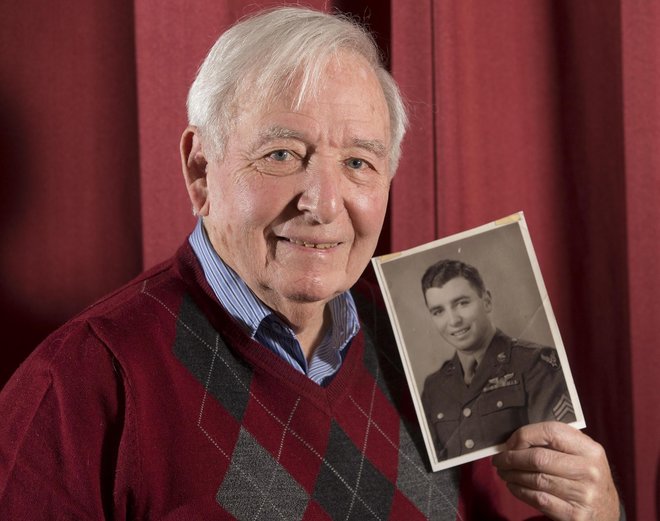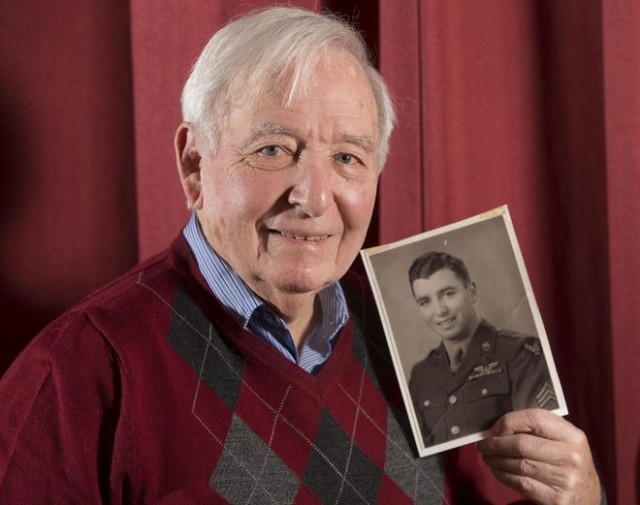When we think of countries that played a role in World War II it is highly unlikely that someone will think of Sweden. The country remained officially neutral during the war, although due to economic necessity it continued to sell and export iron to the Nazi regime. But its role as refuge for hundreds of Allied airmen whose planes were badly damaged on missions deep in Germany has gone untold – until now.
Jan-Olof Nilsson has written more than one award-winning book on the 1,200 United States military men who wound up in Sweden during the war, but it is his latest project that has really brought their incredible stories to light. In 2015 Nilsson produced a documentary about these servicemen called Lucky Strike.Nilsson’s father, who was only ten years old at the time when he saw the massive American bomber plane plummet out from the sky, men bailing during the decent. The memory was one he passed down to Nilsson. As a result recording these events became a passion for the Swedish author.
During the war, Sweden was neutral and rather isolated from the world. When these American men showed up it was quite an experience for the locals and they soon became very popular. The U.S men distributed chocolate and chewing gum to the children, taught the girls how to dance the jitterbug and overall were seen as genuine real-life heroes, according to Nilsson.
Bob Birmingham, one U.S. veteran from Greendale, Wisconsin, who ended up in Sweden during World War II, had never told his story to anyone until he accidentally came across Nilsson working on the documentary while on a trip to Sweden with his son.
Birmingham’s bomber had been badly damaged by anti-aircraft fire while flying over Germany. He and his crew thought they were done for. There was a high casualty rate among American bomber crews and looking back Birmigham knows he was more than fortunate to manage to make it safely to a neutral country like Sweden. Birmingham’s place crash landed in Sweden and he and his crew were safe. Many other Allied planes crashed in Sweden, where they were helped by the locals and treated well by the authorities.
Birmingham did not tell his story, of crash landing in Sweden, to the world but that it was not a secret that he was trying to keep. When folks inquire about why he never shared it, Bob simply replies that it just never came up in conversation. He is a modest man and does not like to appear to be boosting of his war record.
Becoming the focus on this project was completely by accident, but now this rarely told story has been shared with the world. Birmingham is 90 years old at this point, but he has said he feels rejuvenated and excited from all the coverage. He feels young again, and he is incredibly grateful that a random series of events has brought him to this moment so many decades after the fact. During the interview Birmingham’s raw emotion is quite evident. Since he is discussing and recalling memories from a time he rarely spoke about over the years, the almost teary eyed veteran’s reaction is more than understandable.
Lucky Strike premiered last year in Sweden. Birmingham is now showing it in Greendale, Wisconsin, to raise funds for a planned veterans memorial. The first time the movie was shown in Greendale it brought in $5,000 to go toward the local memorial, and the hope is that its upcoming second showing will be equally if not more successful. Birmingham is an example of a real-life hero, and now people know about his experience and his courageous story that went untold for so many decades.
Because of Nilsson and his research many more know about Sweden’s surprising role in the Second World War and stories such as Bill Birmingham’s.

